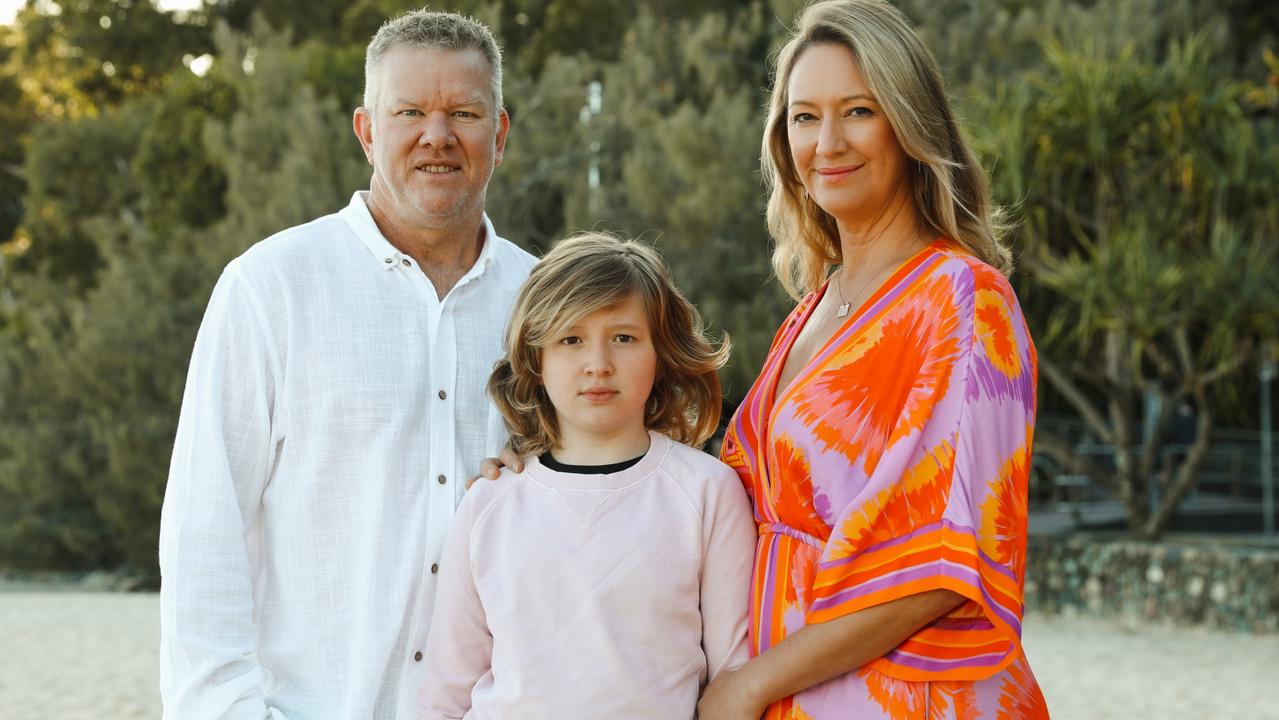The Australians missing out on $283,000 during their lifetime
There’s a “fatal flaw” people are making when it comes to money and some “controversial” changes need to be made.
The average Australian misses out on a whopping $283,000 worth of superannuation over their lifetime, jeopardising their retirement and putting them at risk of homelessness, simply by becoming a parent.
New data shows that women’s superannuation pots take four major hits, with the loss of savings hard to recover over their working life.
According to the Productivity Commission, the average Australian mum typically has two children in her lifetime within the span of five years and takes 32 weeks of full-time maternity leave for each child during this time.
She then returns to an average of 3.5 days work per week until the youngest child is 18 years old.
This sets up a women for hundreds of thousands of lost superannuation.
The first knock to their retirement fund is the thousands lost during the first five years of their children’s lives as they often work reduced hours, which equates to $44,000 post-tax, the figures from Super Fierce found.
Then mum’s take a further hit with a loss of overall earnings compared to women who don’t take time out of the workforce, which adds up to a huge $90,000 over 30 years of work.
If women continue to work reduced hours after their children turn five, they also miss out on $56,000 in compound interest made on their retirement fund.
Combined this is already $190,000 lost but the compound interest on top means women are penalised an extra $93,000, meaning women miss out on $283,000 overall.
Stream more finance news live & on demand with Flash. 25+ news channels in 1 place. New to Flash? Try 1 month free. Offer ends 31 October, 2022 >

‘Financial hardship’
Super Fierce is a wealth advice platform that analyses more than 500 super funds and helps people to switch.
The company, which was co-founded by former chief investment officer at Macquarie Bank, Craig Swanger and its CEO Trenna Probert, said it has helped customers save $122 million in super fees so far.
“Our own Super Fierce calculations show that if a woman switched to the lowest-cost super fund at 29.4 years – the average age women have their first child – then she would save $239,486 in super fees over her lifetime,” Ms Probert explained.
“That’s an extra $343.57 in her pocket each week once she retires. For most people, an extra $50 a day will make a big difference to their lifestyle.”
The 49-year-old founded Super Fierce after experiencing “financial hardship” when she became a mum and experienced some “tough” years.
She was forced to borrow $3000 from her parents when her son was 18-months-old and start all over again, despite a prior high-flying career.
Some nights she couldn’t afford to feed her son.
Three decades after they met working as golf caddies in Japan, she married Mr Swanger bringing together three young children into a blended family.
The couple also went on to have a son together Kit, who is now 9-years-old.

‘Fatal flaw’
Ms Probert said her superannuation had been hard hit after she started her own business but made the “fatal flaw” of not contributing to her super.
“That was exacerbated when I became pregnant and that point started living off savings and wasn’t contributing to my super, it really was the perfect storm,” she told news.com.au.
She said she tried to “play hard and fast” by trying to top up her super contributions when she hit 37 but it was “so hard” as at the time as she was a single mum.
So when the couple set out to create Super Fierce, Ms Probert said that she was “embarrassed” by her superannuation pot and “alarmed” by the statistics.
This include women retiring with a whopping 30 per cent less super than men in Australia or having to add an extra $236 per month out of her own pocket into their super or work an extra 11 years to retire with the same super balance as men.
“When we first started building this product we realised that between the two of us we had nine different super funds, it was something horrendous,” she revealed.
The pair wondered how many other Aussies were in the same situation.

New type of push present
But even more frustrating for Ms Probert was the myths around women raising children.
“We know that women are shouldering the majority of the burden with the care of children still in this country and one of the things that really frustrates me is when certain people will say the men go to work and they are supporting mums so they can raise children,” she said. “I think its really important that we really focus on that statement because the reality is that men that stay in the workforce are not supporting women to raise children, instead women are supporting men’s ability to grow their career uninterrupted and build their super and savings.”
Single women over 55 are also the fastest growing cohort at risk of homeless, she noted.
Most often the choice to have children is a joint one, so it doesn’t make sense that women disproportionately bear the financial burden, she added.

She said to help end the retirement imbalance for women, partners should make a $10,000 top-up to the mum’s super at the point they decide to have children.
“It’s time for a new type of ‘push present’,” she added. “Instead of flowers, soft toys, and spa vouchers we never get to use, push up the value of a mother’s superannuation.”
It’s something Mr Swanger did for her but it has also meant having her superannuation on an aggressive investing strategy to catch her up.
But Ms Probert has an idea that might be considered “controversial”.
“I would like to see, it’s probably controversial, but women given a bonus when we start working to counteract that gender gap that is there as soon as we leave university,” she added. “The average Australian women is graduating from university and earning $10,000 less at the age of 23.”






